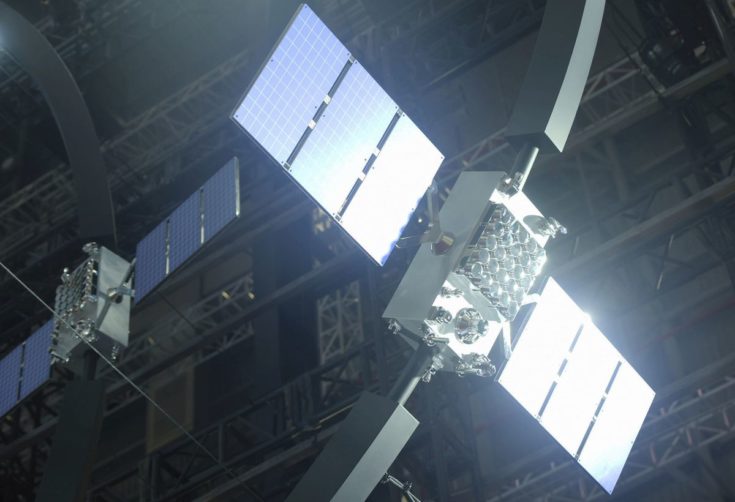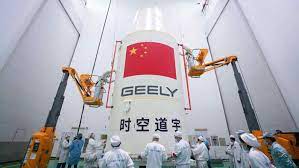
In competition with the likes of Elon Musk, Chinese Zhejiang Geely Holding Group that includes Volvo, the Swedish automaker, and the Geely auto brands produced in China, are launching nine satellites that will communicate with autonomous cars.
China’s Zhejiang Geely Holding Group launched the first nine satellites of a planned constellation of 240 spacecraft last Thursday, starting the deployment phase of a project intended to provide navigation and inter-vehicle communications for autonomous cars.
Nine GeeSAT 1’s launched
The nine GeeSAT 1 satellites launched at 0400 GMT (12 a.m. EDT) Thursday on top of a Long March 2C rocket from the Xichang space center in Sichuan province, located in southwestern China. Chinese officials said the launch was a success after the two-stage, 138-foot-tall (42-meter) Long March launcher released the nine satellites into low Earth orbit.
Airspace warning notices indicated the Long March 2C rocket flew southeast from Xichang, targeting a mid-inclination orbit.
About Geely
Geely, a privately-held company and one of the largest Chinese car manufacturers, led the development of the GeeSAT satellites through a subsidiary named Geespace. In a post-launch press release, Geely said a ground station received signals from all nine satellites after their arrival in orbit, confirming the spacecraft were functioning as expected.
The satellites are the first to launch in the Geely Future Mobility Constellation, a network designed to help self-driving cars autonomous navigate, and provide links for vehicle-to-vehicle communications.

Geely said the network will provide centimeter-level positioning data for self-driving cars, allowing the company’s automotive brands to “realize true autonomous driving.”
first 72 satellites to launch by 2025
The first 72 satellites of the Geely constellation will be launched by 2025, including the nine spacecraft deployed Thursday, the company said. A second phase of deployment will add 168 more satellites to the fleet. Geely’s first two prototype satellites were lost in a launch failure last year.
The satellites carry navigation, communications, and multispectral remote sensing payloads, according to the China Aerospace Science and Technology Corp., China’s largest state-owned space enterprise. CASC subsidiaries provided the launch for Geely.
Geely said the satellites are designed for lifetimes of five years, and will propel themselves back into Earth’s atmosphere at the end of their missions, where they will burn out without leaving behind any space debris.
Satellites to provide positioning information, remote sensing data and communications.
The first GeeSAT satellites will provide positioning information, remote sensing data, and communications for the 2022 Asian Games, Geely said. The spacecraft will also support marine environmental protection.
Geely said its satellite constellation will initially provide services over the Asia-Pacific region, then expand to global coverage after 2026. The holding group’s companies include Volvo, the Swedish automaker, and the Geely auto brands produced in China.
Source: Spaceflight Now

